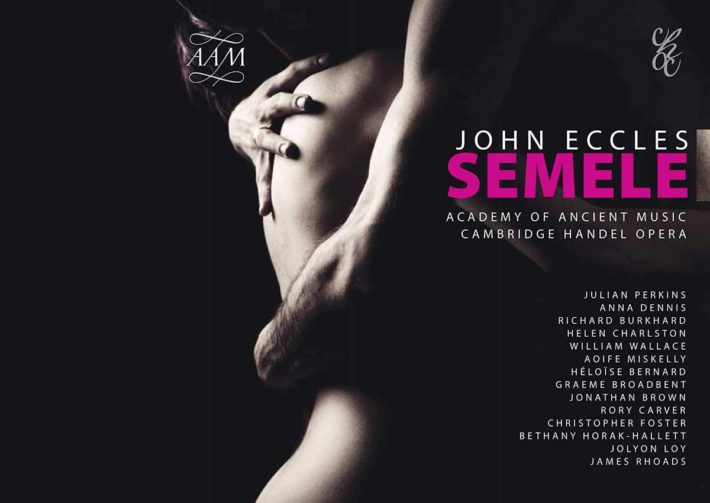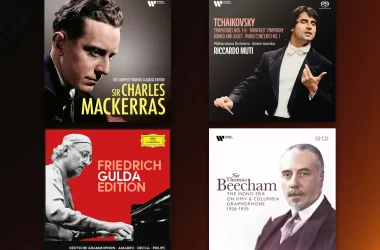When one mentions ‘Semele’, most music enthusiasts will assume it’s Handel’s. But this new release from the Academy of Ancient Music is a ‘Semele’ by the under-represented English composer John Eccles (1668-1735), and predates the more familiar one by his famous German contemporary. Written in the early years of the 18th century and thought to have never been performed in his lifetime, ‘Semele’ waited until 1960 for its premiere performance and until now for what the marketing material calls “its professional recording” (there was a previous recording by the Florida State University Opera).

Eccles’ style is a hybrid of English Baroque and Italian opera. The booklet highlights how the composer lies at the musical junction where the two styles collide in London. The overture owes much in style to Purcell, as does some of the word setting, bearing comparison with The Fairy Queen, Dido and Aeneas and the Odes. In the arias there is the influence of operas of the time, similar to early Handel, but without the virtuosity of the roles he wrote for Senesino and Guadagni. The libretto by William Congreve is poetic and possesses lilting rhythm, which Eccles sets sympathetically.
The opera features in excess of 15 characters, requiring a substantial cast. The singers are generally very well matched, but casting this number of voices is infinitely difficult. Semele is soprano Anna Denis, whose richness in her lower voice is remarkably strong along with her precision of diction. Bass Graeme Broadbent as the high priest has the largest voice and is rather commanding. His solo passages are formidable, but in ensembles he slightly over-dominates the lighter and more lyrical voices of tenor Rory Carver (the second priest) and Jonathan Brown (baritone, Cadmus). Brown’s velvety, distinguished and distinctive voice complements and contrasts his fellow singers in a gentle but beguiling way. Soprano Aoife Miskelly (Ino) and tenor William Wallace (Athamas) match Denis’ voice in size and approach to sound-production, but in comparison lack the same clarity of diction.
Mezzo-Soprano Helen Charlston as Juno Queen of the Gods and soprano Héloïse Bernard as Iris’s handmaid work remarkably well together when they appear in act II, despite having quite different voices, bringing something of the unearthly and supernatural, similarly to the magical characters in Purcell’s operas. Act III brings some of the strongest performances. Of note is baritone Richard Burkhard as Jupiter, who impresses in his vocal characterisations and dialogues with Semele, while Charlston relishes the more Italianate passages with impressive execution.
The playing from the Academy of Ancient Music is excellent, no-more evident than in the orchestral interludes. There is real vivacity and energy, with clear and articulated performances from the strings. The continuo playing, including two harpsichords, theorbo and guitar, is stylish without being intrusive.
Director Julian Perkins chooses tempi which are brisk, but sound natural. These provide contrast that aids the drama, changing and enhancing the moods and atmospheres. The booklet remarks how Eccles omitted tempo directions, emphasising Perkins’ judiciously informed musical pacing.
Recorded in St. Jude-on-the-Hill, London in November 2019, there is a light ambiance, sympathetically captured. The attractively presented 200 page booklet is comprehensive in every possible sense. Setting the opera in every possible context, including essays on period performance and the composer’s biography, not to mention a full text, artist biographies, instrumental and recording details. Richard Pratt gives an easy to understand synopsis, which is most welcome. A further contribution from Stephen Fry (quoting his Mythos publication) aids the contextual understanding of Greek mythology.
No stone has been left unturned in producing Eccles’ ‘Seleme’; it is given a performance it truly deserves, shining light on a composer and opera unduly neglected. A recommended listen for those with an interest in music of this period. There is much to enjoy musically and musicologically in this diligent and all-encompassing release.
John Eccles – “Semele”
Academy of Ancient Music
Cambridge Handel Opera
AAM Records, CD AAM012



















